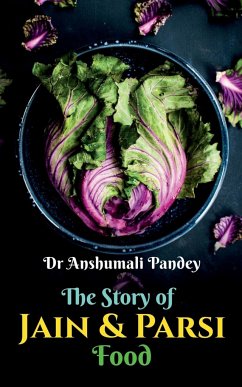Jains go out of their way so as not to hurt even small insects and other tiny animals, because they believe that harm caused by carelessness is as reprehensible as harm caused by deliberate action. Hence they take great pains to make sure that no minuscule animals are injured by the preparation of their meals and in the process of eating and drinking. Traditionally Jains have been prohibited from drinking unfiltered water. In the past, when stepwells were used for the water source, the cloth used for filtering was reversed, and some filtered water poured over it to return the organisms to the original body of water. This practice of jivani or bilchavani is no longer possible because of the use of pipes for water supply. The Parsis arrived in India in the seventeenth century after fleeing religious persecution in Iran and settled on the coast in Gujarat in Valsad district and Mumbai islands. Predominantly their food is sweet, sour and spicy. Non-veg fare forms a big part of the cuisine. Egg, mutton, fish and potatoes were more popular. Traditional Parsi cuisine combines the spiciness of saffron and cinnamon, the sweetness of jaggery, and the tanginess of barberry. Most preparations are also topped with dry fruits and nuts. Fresh green herbs are frequently used along with locally found fruits such as plums, pomegranates, quince, prunes, apricots, and raisins.
Hinweis: Dieser Artikel kann nur an eine deutsche Lieferadresse ausgeliefert werden.
Hinweis: Dieser Artikel kann nur an eine deutsche Lieferadresse ausgeliefert werden.








